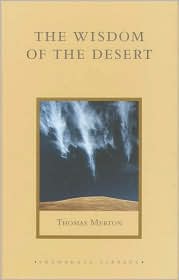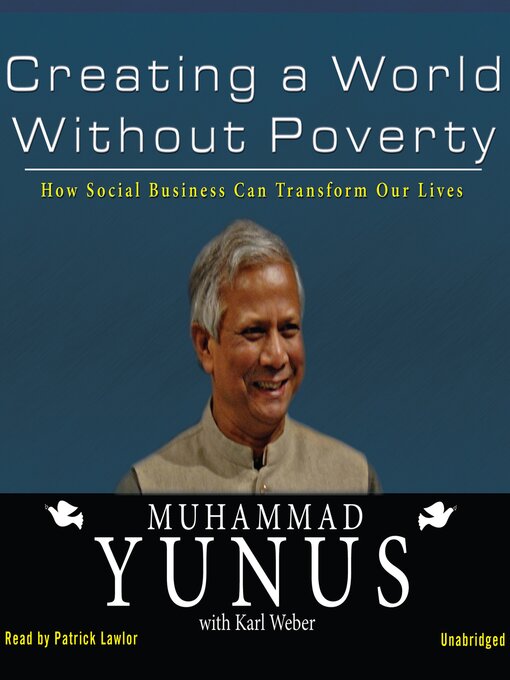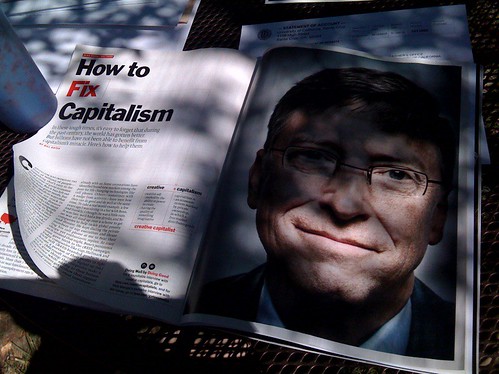"Arise, O people, and, by the power of God's might, resolve to gain the victory over your own selves, that haply the whole earth may be freed and sanctified from its servitude to the gods of its idle fancies -- gods that have inflicted such loss upon, and are responsible for the misery of, their wretched worshipers. These idols form the obstacle that impedeth man in his efforts to advance in the path of perfection. We cherish the hope that the Hand of Divine power may lend its assistance to mankind, and deliver it from its state of grievous abasement."
(Baha'u'llah, Gleanings from the Writings of Baha'u'llah, p. 93)

I have had a book on my shelf for a while-- "The Wisdom of the Desert" by Thomas Merton. I felt drawn to it this morning during my morning devotions. I imagine myself to be in a battle to regain victory over my thoughts to arrive at a place of purity, independence, freedom from enslavement, strength, zeal and enthusiasm. Thomas Merton was just the thing this morning. Who better to turn to for victory over self than the wisdom of nuns and monks and mystics who devote their lives to complete transcendence over self. I have posted previously about some of the books by Margaret Funk that have helped me in these endeavors, "
Thoughts matter"and "
Tools matter". She also draws on the wisdom of the early Christian mystics to explore ways that we can gain victory over our own thought.
Merton writes a nice introduction to the collection of wisdom that he has compiled. I found the end of the introduction compelling! Here is an excerpt:
"Ours is certainly a time for solitaries and for hermits. But merely to reproduce the simplicity, austerity and prayer of these primitive souls is not a complete or satisfactory answer. We must transcend them, and transcend all those who, since their time, have gone beyond the limits which they set. We must liberate ourselves, in our own way, from involvement in a world that is plunging into disaster. But our world is different from theirs. Our involvement is more complete. Our danger is far more desparate. Our time, perhaps, is shorter than we think.
We cannot do exactly what they did. But we must be as thorough and as ruthless in our determination to break all spiritual chains, and cast off the domination of alien compulsions, to find our true selves, to discover and develop our inalienable spiritual liberty and use it to build, on earth, the Kingdom of God...we need to learn from these men of the fourth century how to ignore prejudice, defy compulsion and strike out fearlessly into the unknown."
Hah! There is much in these two paragraphs that I wish to mull over at the current point in my life.
And a few of the simple yet profound nuggets of wisdom that are contained in the book from the desert mystics:
"There are three kinds of men who find honor in the sight of God: First, those who, when they are ill and tempted, accept all these things with thanksgiving. The second, those who do all their works clean in the sight of God, in no way merely seeking to please men. Those who sit in subjection to the command of the spiritual father and renounce all their own desires."
I find such peace in the notion of a life spent renouncing desire rather than seeking to attain and fulfill our desires. Although there are desires and then there are desires.
"...whatever you see your soul to desire according to God, do that thing, and you shall keep your heart safe."
"If we but had with us these three men: Noe, Job and Daniel... Now Noe represents those who possess nothing. Job represents those who suffer tribulation. Daniel, those who discern good from evil. If these three actions are found in a man, then God dwells within him."
"There are two things which a monk ought to hate above all, for by hating them he can become free in this world...An easy life and vain glory."
I have found all these really most comforting as I meet my struggles head on today. Merton states that the "desert fathers" were "inclined to accept the common realities of life and be content with the ordinarly lot of man who has to struggle all his life to overcome himself." Merton tells the story of the "monk John, who boasted that he was beyond all temptation and was advised by a shrewd elder to pray to God for a few good solid battles in order that his life might continue to be worth something."
I embrace an attitude of thanksgiving for the battle and the struggle and the daily opportunity to gain victory over my own self.
 Tibetan singing bowl
Tibetan singing bowl Cistercian monks
Cistercian monks and today's purchase/iTunes download which i so ADORE: "The First Flute" by Kevin Locke the renowned Baha'i musician and cultural ambassador for native peoples in North America.
and today's purchase/iTunes download which i so ADORE: "The First Flute" by Kevin Locke the renowned Baha'i musician and cultural ambassador for native peoples in North America. Tibetan singing bowl
Tibetan singing bowl Cistercian monks
Cistercian monks and today's purchase/iTunes download which i so ADORE: "The First Flute" by Kevin Locke the renowned Baha'i musician and cultural ambassador for native peoples in North America.
and today's purchase/iTunes download which i so ADORE: "The First Flute" by Kevin Locke the renowned Baha'i musician and cultural ambassador for native peoples in North America.











